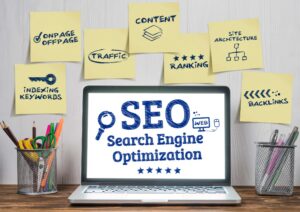Marketing is an essential tool for businesses of all sizes, but it can be particularly beneficial for beginners, solopreneurs, and small to medium enterprises (SMEs). This article will explore the benefits of marketing for beginners and provide an introduction to various marketing tools and techniques that can help drive business success.
In this short guide you’ll learn more about marketing for beginners, why you should focus on marketing and how it’s done in todays world.
Introduction
Marketing is the process of promoting and selling products or services. It involves understanding the needs and wants of the target audience and creating strategies to meet those needs. For beginners, understanding the basics of marketing can provide a solid foundation for business growth.
Benefits of Marketing
Increased Brand Awareness
- Marketing helps businesses reach their target audience and create brand recognition. A strong brand identity is crucial for long-term success.
- Building a strong brand identity involves creating a unique name, logo, and other features that distinguish the business from its competitors.
Improved Customer Engagement
- Marketing techniques such as social media and email marketing can help businesses connect with their customers. These platforms allow businesses to create meaningful interactions and build customer loyalty.
- Customer engagement is not just about selling products or services. It’s about building a relationship with customers and making them feel valued.
Enhanced Online Visibility
- Search engine optimization (SEO) plays a crucial role in improving website visibility and attracting organic traffic.
- Digital marketing strategies can increase online presence and help businesses reach a wider audience.
Increased Sales and Revenue
- Effective marketing campaigns can lead to higher conversion rates and increased sales.
- Targeted advertising and persuasive marketing techniques can significantly impact revenue growth.
Competitive Advantage
- Marketing allows businesses to differentiate themselves from competitors.
- Staying ahead in a competitive market requires effective marketing strategies.
Marketing Tools and Techniques
Introduction to Digital Marketing
- Digital marketing involves promoting products or services through various online channels. These channels include social media, email marketing, content marketing, and more.
- Digital marketing can be accessible and beneficial for beginners. It offers a cost-effective way to reach a large audience and provides measurable results.
Social Media Marketing
- Social media platforms like Facebook, Instagram, and Twitter offer a platform for businesses to connect with their audience.
- Effective social media marketing involves creating engaging content, interacting with followers, and using paid advertising to reach a wider audience.
Content Marketing
- Content marketing involves creating and sharing valuable content to attract and engage a target audience.
- Beginners can leverage content marketing by creating blog posts, videos, infographics, and other types of content that provide value to their audience.
Email Marketing
- Email marketing involves sending emails to a group of people to promote products or services.
- Building an effective email marketing strategy involves collecting email addresses, creating engaging email content, and analyzing the results of email campaigns.
Search Engine Optimization (SEO)
- SEO involves optimizing a website to rank higher in search engine results.
- SEO techniques include keyword research, creating high-quality content, and building backlinks.
Marketing for Small Businesses SME
Solopreneurs face unique challenges in online marketing. With so many voices and platforms vying for attention, it’s easy to spend more time than necessary seeking answers. However, with actionable strategies and the right tools, you can achieve maximum results in minimum time.
Benefits of Solopreneur Marketing
Saving Time and Effort with Actionable Strategies
- Successful online marketers often share cutting-edge nuggets of wisdom that can help you bring your business online and thrive.
- These tips are designed to provide maximum results in minimum time, saving you both effort and resources.
Maximizing Resources with the Latest Tools
- The latest tools can help you optimize your time, talents, and marketing budget wisely.
- Investing wisely in these tools can provide a significant return on investment and help your business grow.
Key Features of Solopreneur Marketing
Strategy Development for Success
- Tailored strategies can help your business find the best path to success.
- These strategies can also help you avoid distractions and rabbit holes, keeping you focused on your goals.
Information on Online Courses for Further Learning
- Online courses offered by Solopreneur Marketing can provide further learning opportunities.
- Continuous education can help you stay ahead of the curve and ensure your marketing strategies remain effective.
Testimonials and Case Studies
- Success stories from solopreneurs who have benefited from Solopreneur Marketing can provide real-life examples of how these strategies and tools can make a difference.
- These testimonials can provide inspiration and motivation for other solopreneurs looking to improve their marketing efforts.
Conclusion
Marketing is a powerful tool that can drive business growth and success. For beginners, understanding the basics of marketing and implementing effective marketing strategies can lead to increased brand awareness, improved customer engagement, enhanced online visibility, increased sales, and a competitive advantage.
Marketing offers a wealth of benefits and features for solopreneurs and SME looking to maximize their online marketing efforts. With actionable strategies, the latest tools, and continuous learning opportunities, you can take your business to new heights.
FAQ
Sales involve direct interaction with potential customers to achieve a sale. Marketing, on the other hand, involves activities aimed at reaching potential customers and creating awareness about a product or service.
Digital marketing involves promoting products or services through various online channels. These channels include social media, email marketing, content marketing, and more.
SEO, or Search Engine Optimization, involves optimizing a website to rank higher in search engine results. This can lead to increased visibility and organic traffic.
Content marketing involves creating and sharing valuable content to attract and engage a target audience. This can include blog posts, videos, infographics, and more.
Social media marketing involves using social media platforms to promote a product or service. This can involve creating engaging content, interacting with followers, and using paid advertising to reach a wider audience.
Email marketing involves sending emails to a group of people to promote a product or service. This can involve collecting email addresses, creating engaging email content, and analyzing the results of email campaigns.
Marketing can help beginners increase brand awareness, improve customer engagement, enhance online visibility, increase sales, and gain a wider audience for your message.






